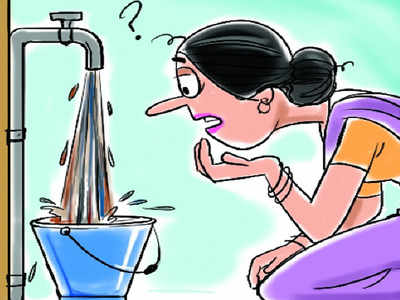The Hindu 29.11.2013
‘Set up ground water authority to check drilling of borewells’

: Setting up a ground water authority consisting of
experts and imposing a moratorium on private borewells are essential to
check the indiscriminate drilling of borewells, says an expert.
V.
Mahesha, an expert in hydrogeology, has suggested that it will help
undo the damage that has already been done to the groundwater table.
It
was reported this week that more than 25 per cent of coconut trees in
Chamarajanagar district have died and the phenomenon is spreading. It is
being attributed to depletion of ground water.
It
has also been reported that when it rains, the ground is moist for a few
days and it dries up quickly. It is affecting other crops too,
according to Mr. Mahesha.
Indiscriminate drilling of
borewells is the most probable cause for such drastic depletion of
ground water. Geologists have known for some time that depletion of
water table in areas of high borewell density is far in excess of what
is expected after taking into account rainfall variations and the
increased ground water usage (which is now more than 20 times the use in
1960), he explained.
Deeper Zones
“So,
there has to be another reason. It has now been confirmed that ground
water in the tight fracture-controlled aquifers in the State has found
vents in borewells for free flow from shallow zones to deeper zones,”
Mr. Mahesha, a member of Mysore Grahakara Parishat, observed.
“Borewells
are draining water into the earth. The land has become a sponge which
sucks rainwater and sends it directly to deep underground,” he
explained.
As a result, he said, the surface runoffs have also diminished limiting the flow to tanks, tributaries and rivers.
This is also the reason that even a perennial river like the Cauvery is getting depleted, he said in a release here.
“In
such a situation, shallow ground water cannot be recharged. Water
directed underground by recharge pits will directly flow into deep
underground and will not raise the water table. This has happened in
many places in Karnataka where a large number of borewells have been
sunk,” he said.
“If the drilling of borewells
continues at the current pace, we will soon reach a point when all
surface water will be drained into the deep underground and we will be
left with no accessible water at all. Dryland agriculture will then die
and the land will turn into a desert,” he warned.
Steps
such as creation of subsurface check dams, plugging the vents (that
allow water to flow from a shallow zone to a deeper zone) and recharging
aquifers which are not drained to lower levels should be pursued with
great urgency, he said.

